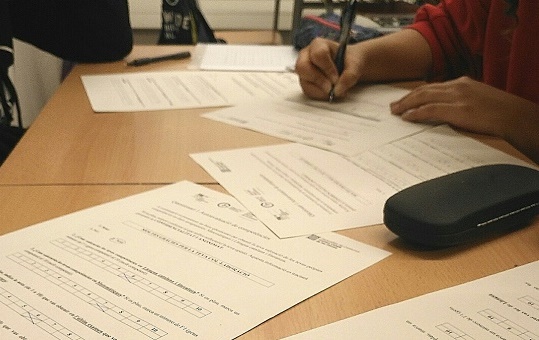In recent decades, women outnumber men in university degrees and take on disciplines traditionally developed by men, such as medicine, mathematics or biology. Nevertheless, gender inequalities persist: young women continue to rule out subjects related to engineering and the hard sciences, while young men show less interest in courses and professions related to humanities and social sciences. This vocational segregation, which has significant implications in the professional trajectories of men and women, can be explained by the diverse ways in which sexism is reproduced in the academic setting, among other factors. The belief that girls are worse at maths and physics than boys, or that boys are worse than girls at language are examples of academic sexism.
At the end of 2016, Gender and ICT settled a collaboration agreement with the Catalan Women’s Institute (ICD) aimed at tackling the challenges associated with the influence of sexism on students’ educational choices. The activities to carry out are based on the results of the quantitative and qualitative research conducted in recent years under the project ESTEREO (“Challenges to the persistence of gender roles and stereotypes in the choice of higher education studies from a longitudinal approach. The role of families and teachers”), funded by the Spanish Ministry of Economy and Competitiveness (Ref. FEM2014-55096-R) with Milagros Sáinz as principal investigator. These results are shared through workshops and online activities with secondary school students, teachers and families.
The first workshops were carried out in December 2016 with several groups of students from a secondary school in Barcelona that is collaborating on the project. Through a combination of individual and group dynamics, adolescents in the second and third years of compulsory secondary education could reflect on the influence of gender stereotypes on how boys and girls assess their own abilities in math and language.
The agreement with the ICD also includes the distribution of school material with slogans against the prevalence of gender stereotypes in science while promoting equal opportunities in the field. In the coming weeks, new workshops will be held with groups of secondary school students. Some of the research findings targeting young people, secondary teachers and parents will be shared in social media.
